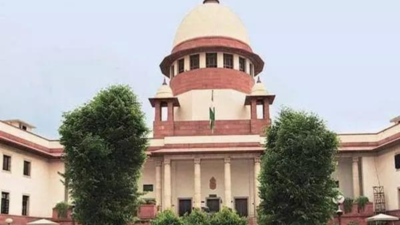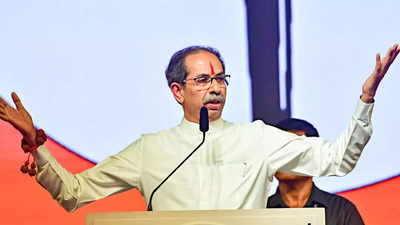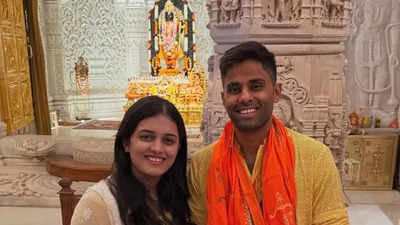PM Modi showcases India’s spiritual legacy worldwide | India News
NEW DELHI: India’s rich religious heritage is finding resonance far beyond its borders, and Prime Minister Narendra Modi’s global visits have become a powerful platform to showcase this cultural legacy. From Southeast Asia to South America, the echoes of India’s ancient epics, mantras, and spiritual traditions are captivating hearts and strengthening ties with nations worldwide.
On his current visit to Thailand, PM Modi witnessed a vibrant presentation of “Ramakien”, Thailand’s national epic deeply influenced by the Indian “Ramayana”. This centuries-old tale, an integral part of Thai literature and culture, reflects the enduring impact of India’s spiritual narratives. The performance underscored how Indian heritage seamlessly blends with local traditions, fostering a shared cultural bond. Wherever PM Modi travels, such displays of India’s religious legacy follow, turning diplomatic visits into celebrations of civilisational connect.
In March 2025, during his visit to Mauritius, PM Modi visited Ganga Talao, a sacred crater lake revered by the Indian diaspora. There, he offered holy water from the Triveni Sangam, symbolising the spiritual unity between India and Mauritius. This gesture highlighted the deep-rooted ties nurtured by shared faith and traditions. Similarly, in December 2024, his visit to Kuwait brought forth a remarkable encounter with two Kuwaiti scholars renowned for translating the Mahabharata and Ramayana into Arabic, a testament to the universal appeal of these epics.
The Americas, too, have embraced this heritage. In November 2024, PM Modi’s visit to Brazil was marked by the chanting of Vedic mantras in Rio de Janeiro, followed by a captivating “Ramayana” enactment. On the same trip, in Guyana, children greeted him with soulful Ram bhajans and Vedic chants, reflecting the diaspora’s pride in their roots. In Russia, during an October 2024 visit to Kazan, Russian nationals welcomed him with Krishna bhajans, showcasing the global reach of India’s devotional music.
In Laos, also last year, PM Modi was greeted with the “Gayatri Mantra” and a mesmerising Lao “Ramayana” performance, blending local artistry with Indian ethos.
Also read: Watch: PM greeted with ‘Modi, Modi’ chants as he arrives in Thailand for BIMSTEC summit
Even earlier, in 2021, his visit to Italy saw community members in Rome chanting the Shiva Mantra in his presence, a poignant moment of cultural reverence.
Through these interactions, PM Modi is not just a statesman but a cultural ambassador, carrying India’s spiritual heritage to the world stage. Each visit reinforces India’s soft power, weaving a tapestry of unity, faith, and shared humanity across continents.













